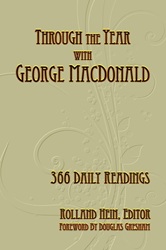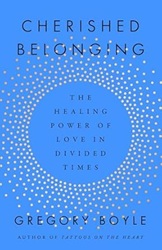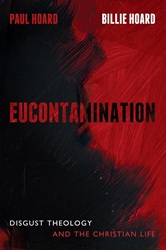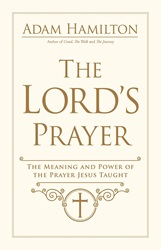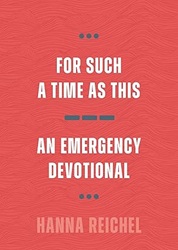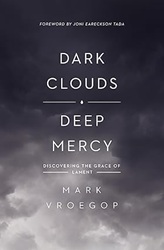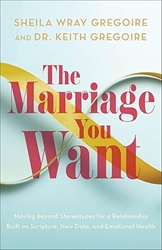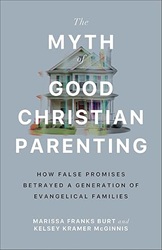 The Myth of Good Christian Parenting
The Myth of Good Christian Parenting
How False Promises Betrayed a Generation of Evangelical Families
by Marissa Franks Burt and Kelsey Kramer McGinnis
Brazos Press, 2025. 225 pages.
Review written November 8, 2025, from my own copy, preordered on Amazon.com
Starred Review
This is a book that every Christian parent should read – to equip them to evaluate other “Christian” parenting books.
I preordered this book because I was already an avid follower of Marissa Franks Burt on Twitter – as she creates reels analyzing problematic Christian parenting content, explaining what’s harmful about it in a matter-of-fact way and spotlighting teaching that’s hurtful.
This book has research behind it. It examines “the history and theological assumptions behind ‘biblical’ family-life teaching, including the resulting impact.”
Together, we decided to take our study further. We set out to read primary sources, trace how different ideas developed, identify patterns across them, and consider the dynamics of American evangelicalism, which is itself a complicated subject to write about. We wanted to offer a careful theological analysis and historical survey in order to help those touched by these resources examine the impact. We don’t aim to speak authoritatively about every individual’s experience, especially since it’s impossible to state with certainty to what extent families adopted these ideas in practice. Our goal isn’t to take down any particular figure or to suggest that there was nothing of merit in any of these resources. That said, we do think it is high time to hold the teachers, pastors, writers, influencers, and self-platformed Christian parenting “experts” accountable for propagating some sweeping myths about parenthood (and, in some cases, about Christian faith itself). We also hope this book offers access points for readers to understand their own experiences and formation.
We wanted to hear directly from people who were impacted by the principles of popular Christian parenting books, so we conducted an informal survey with open-ended questions and invited adult children and parents to share their perspectives. We also interviewed some of the respondents. One thing quickly became clear: People felt betrayed by these teachings. We have included excerpts from the survey responses and interviews throughout the book; these are published with the participants’ permission.
The authors explain how the Christian parenting industry grew, playing on parents’ fears and desires for their children:
Christian parenting resources depend on promises made to parents: If you get it right, then there will be desired results – if not now, then somewhere down the road. The potent expectation for children to be discipled into right belief and right practice from infancy on up keeps families working hard, powered by everything from board books about systematic theology to prayer guides for grandparents.
Christian “experts” – often self-credentialed and self-platformed – explain how to bring meaning to the mundane, to wrangle the chaos of family life, to “do” parenting with excellence.
The book has three parts. First, it explains how the Christian Parenting Empire was built. Then the meat of the book is in the second part, looking at the central myths of Good Christian Parenting. And the final section looks at where we go from here, looking at the data about the fruit of these parenting methods, but also giving the reader solid guidelines for evaluating parenting materials for their own families.
The central myths covered include “Umbrellas of Authority” – about authoritarian structures with the man (and often the pastor) in charge; “Who’s in Charge Here?” – more about controlling children and making them comply with instant, cheerful obedience; “Are Children Human?” – looking at these teachings from the perspective of children as fellow human beings – and particularly vulnerable ones – with their own autonomy; “Sinners from Their Mothers’ Wombs” – this one is about seeing natural childish behavior as sinful and wicked; and “Spare the Rod” – about spanking taught as God’s design or even God’s command.
I could say a lot about my reactions to each of these topics – these authors have said it for me, though! Please, if you’re tempted to hit your child, with a “rod” or anything else, take the time to read through this book – it will help you think through what you’re doing, beyond blindly being told it’s God’s one right way.
I’ve already written about my own evangelical upbringing when I reacted to the video series “Shiny Happy People” about folks brought up in the Bill Gothard seminars. I called my blog series “Shiny Happy Childhood.” Especially relevant to this book was the post I did about spanking and my own experience with it. I mentioned that I attended Bill Gothard seminars from a young age. Also, when I was a teen, my church did a film series of James Dobson’s teachings.
I have to say that by the time I was a parent myself, I was not at all a fan of James Dobson and Focus on the Family. (When they came out against the Family and Medical Leave Act during the Clinton years because it was “bad for business” it made their whole “focus” questionable to me.) My then-husband had a similar background to mine, and we had both experienced spankings from the child’s perspective, and neither of us wanted to do that to our own children. A Christian friend said that they would slap their child’s hand and say “No!” – so we tried that for a bit. I put an end to it the day my toddler hit their head on a table, looked at the table, said “No!” and slapped the table. Did I want to teach my child to hit? No, I did not. We found other ways.
I also appreciate and will never forget something my mother-in-law said. My own mother had often said that my baby brothers and sisters showed that we are born with a sin nature. (That myth about “Sinners from Their Mother’s Wombs”) My mother-in-law, though, told me about an article she’d read that said that toddlers saying “No!” are learning self-autonomy. It became a joke. When my child was being difficult, we’d chant “Self-autonomy!” This matched some other resources I was reading – I admit I was avoiding Christian parenting resources because of my own experience – but making it a phrase I would remember in the heat of the moment was thanks to my mother-in-law. The whole idea that a toddler’s defiance is a natural developmental step as they learn they are their own person – that was an important lesson for me as a young mother.
So I mostly read this book for perspective on the way I was parented. It was healing to read well-reasoned arguments about what, exactly, is unhealthy about so many of those myths.
Something that turned me off of Focus on the Family and similar organizations long ago was when they put the “Christian” or “biblical” label on something that Christians had many different opinions about. And that’s the same thing with so many of these Christian parenting resources. They try to put the authority of the Bible behind their own particular interpretation of the Bible. And then they tell parents that their kids’ eternal souls will suffer if they don’t follow their teachings exactly. They tie up heavy loads and place them on parents’ shoulders.
This book will lift the burden. For parents of young children, it can help you evaluate parenting resources, and it can help you work through thoughts and feelings about your own parents’ beliefs, and if you have older kids, it can help you think through your own parenting choices. Highly recommended.
[I’d love to say more about some of the content in this book, but am not sure even where to begin, so let me encourage anyone else who reads this book to leave a comment.]
marissaburt.com
kkramermcginnis.com
Buy from Amazon.com
Find this review on Sonderbooks at: www.sonderbooks.com/Nonfiction/myth_of_good_christian_parenting.html
Disclosure: I am an Amazon Affiliate, and will earn a small percentage if you order a book on Amazon after clicking through from my site.
Disclaimer: I am a professional librarian, but the views expressed are solely my own, and in no way represent the official views of my employer or of any committee or group of which I am part.
Subscribe for more reviews and talk about books.
Join the conversation: What did you think of this book?

